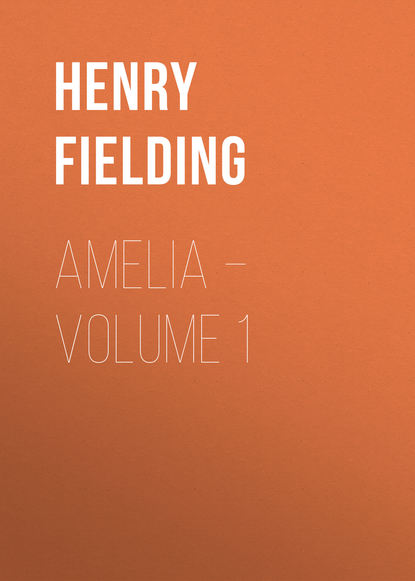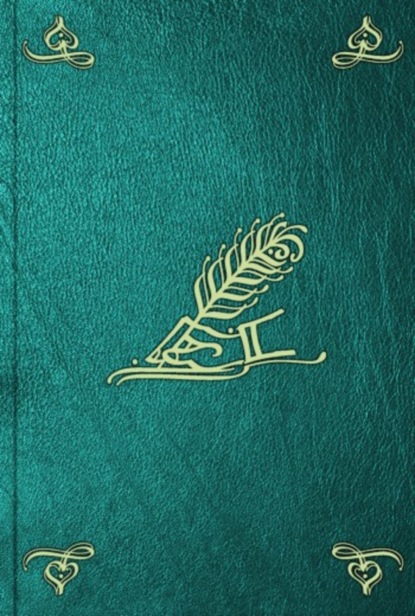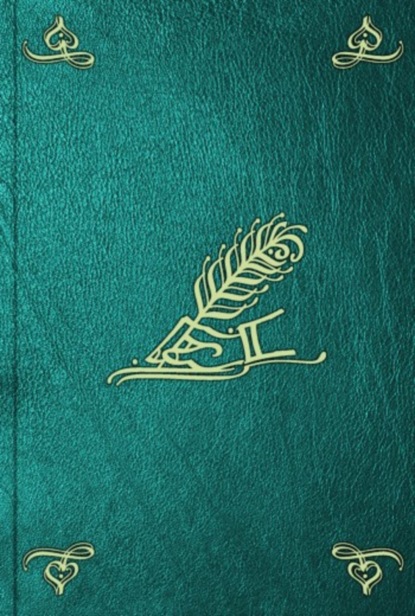 Полная версия
Полная версияПолная версия:
Генри Филдинг Amelia – Volume 1
- + Увеличить шрифт
- - Уменьшить шрифт

Henry Fielding
Amelia – Volume 1
INTRODUCTION
Fielding's third great novel has been the subject of much more discordant judgments than either of its forerunners. If we take the period since its appearance as covering four generations, we find the greatest authority in the earliest, Johnson, speaking of it with something more nearly approaching to enthusiasm than he allowed himself in reference to any other work of an author, to whom he was on the whole so unjust. The greatest man of letters of the next generation, Scott (whose attitude to Fielding was rather undecided, and seems to speak a mixture of intellectual admiration and moral dislike, or at least failure in sympathy), pronounces it "on the whole unpleasing," and regards it chiefly as a sequel to Tom Jones, showing what is to be expected of a libertine and thoughtless husband. But he too is enthusiastic over the heroine. Thackeray (whom in this special connection at any rate it is scarcely too much to call the greatest man of the third generation) overflows with predilection for it, but chiefly, as it would seem, because of his affection for Amelia herself, in which he practically agrees with Scott and Johnson. It would be invidious, and is noways needful, to single out any critic of our own time to place beside these great men. But it cannot be denied that the book, now as always, has incurred a considerable amount of hinted fault and hesitated dislike. Even Mr. Dobson notes some things in it as "unsatisfactory;" Mr. Gosse, with evident consciousness of temerity, ventures to ask whether it is not "a little dull." The very absence of episodes (on the ground that Miss Matthews's story is too closely connected with the main action to be fairly called an episode) and of introductory dissertations has been brought against it, as the presence of these things was brought against its forerunners.
I have sometimes wondered whether Amelia pays the penalty of an audacity which, a priori, its most unfavourable critics would indignantly deny to be a fault. It begins instead of ending with the marriage-bells; and though critic after critic of novels has exhausted his indignation and his satire over the folly of insisting on these as a finale, I doubt whether the demand is not too deeply rooted in the English, nay, in the human mind, to be safely neglected. The essence of all romance is a quest; the quest most perennially and universally interesting to man is the quest of a wife or a mistress; and the chapters dealing with what comes later have an inevitable flavour of tameness, and of the day after the feast. It is not common now-a-days to meet anybody who thinks Tommy Moore a great poet; one has to encounter either a suspicion of Philistinism or a suspicion of paradox if one tries to vindicate for him even his due place in the poetical hierarchy. Yet I suspect that no poet ever put into words a more universal criticism of life than he did when he wrote "I saw from the beach," with its moral of —
"Give me back, give me back, the wild freshness of morning – Her smiles and her tears are worth evening's best light."
If we discard this fallacy boldly, and ask ourselves whether Amelia is or is not as good as Joseph Andrews or Tom Jones, we shall I think be inclined to answer rather in the affirmative than in the negative. It is perhaps a little more easy to find fault with its characters than with theirs; or rather, though no one of these characters has the defects of Blifil or of Allworthy, it is easy to say that no one of them has the charm of the best personages of the earlier books. The idolaters of Amelia would of course exclaim at this sentence as it regards that amiable lady; and I am myself by no means disposed to rank amiability low in the scale of things excellent in woman. But though she is by no means what her namesake and spiritual grand-daughter. Miss Sedley, must, I fear, be pronounced to be, an amiable fool, there is really too much of the milk of human kindness, unrefreshed and unrelieved of its mawkishness by the rum or whisky of human frailty, in her. One could have better pardoned her forgiveness of her husband if she had in the first place been a little more conscious of what there was to forgive; and in the second, a little more romantic in her attachment to him. As it is, he was son homme; he was handsome; he had broad shoulders; he had a sweet temper; he was the father of her children, and that was enough. At least we are allowed to see in Mr. Booth no qualities other than these, and in her no imagination even of any other qualities. To put what I mean out of reach of cavil, compare Imogen and Amelia, and the difference will be felt.
But Fielding was a prose writer, writing in London in the eighteenth century, while Shakespeare was a poet writing in all time and all space, so that the comparison is luminous in more ways than one. I do not think that in the special scheme which the novelist set himself here he can be accused of any failure. The life is as vivid as ever; the minor sketches may be even called a little more vivid. Dr Harrison is not perfect. I do not mean that he has ethical faults, for that is a merit, not a defect; but he is not quite perfect in art. His alternate persecution and patronage of Booth, though useful to the story, repeat the earlier fault of Allworthy, and are something of a blot. But he is individually much more natural than Allworthy, and indeed is something like what Dr Johnson would have been if he had been rather better bred, less crotchety, and blessed with more health. Miss Matthews in her earlier scenes has touches of greatness which a thousand French novelists lavishing "candour" and reckless of exaggeration have not equalled; and I believe that Fielding kept her at a distance during the later scenes of the story, because he could not trust himself not to make her more interesting than Amelia. Of the peers, more wicked and less wicked, there is indeed not much good to be said. The peer of the eighteenth-century writers (even when, as in Fielding's case, there was no reason why they should "mention him with Kor," as Policeman X. has it) is almost always a faint type of goodness or wickedness dressed out with stars and ribbons and coaches- and-six. Only Swift, by combination of experience and genius, has given us live lords in Lord Sparkish and Lord Smart. But Mrs. Ellison and Mrs. Atkinson are very women, and the serjeant, though the touch of "sensibility" is on him, is excellent; and Dr Harrison's country friend and his prig of a son are capital; and Bondum, and "the author," and Robinson, and all the minor characters, are as good as they can be.
It is, however, usual to detect a lack of vivacity in the book, an evidence of declining health and years. It may be so; it is at least certain that Fielding, during the composition of Amelia, had much less time to bestow upon elaborating his work than he had previously had, and that his health was breaking. But are we perfectly sure that if the chronological order had been different we should have pronounced the same verdict? Had Amelia come between Joseph and Tom, how many of us might have committed ourselves to some such sentence as this: "In Amelia we see the youthful exuberances of Joseph Andrews corrected by a higher art; the adjustment of plot and character arranged with a fuller craftsmanship; the genius which was to find its fullest exemplification in Tom Jones already displaying maturity"? And do we not too often forget that a very short time – in fact, barely three years – passed between the appearance of Tom Jones and the appearance of Amelia? that although we do not know how long the earlier work had been in preparation, it is extremely improbable that a man of Fielding's temperament, of his wants, of his known habits and history, would have kept it when once finished long in his desk? and that consequently between some scenes of Tom Jones and some scenes of Amelia it is not improbable that there was no more than a few months' interval? I do not urge these things in mitigation of any unfavourable judgment against the later novel. I only ask – How much of that unfavourable judgment ought in justice to be set down to the fallacies connected with an imperfect appreciation of facts?
To me it is not so much a question of deciding whether I like Amelia less, and if so, how much less, than the others, as a question what part of the general conception of this great writer it supplies? I do not think that we could fully understand Fielding without it; I do not think that we could derive the full quantity of pleasure from him without it. The exuberant romantic faculty of Joseph Andrews and its pleasant satire; the mighty craftsmanship and the vast science of life of Tom Jones; the ineffable irony and logical grasp of Jonathan Wild, might have left us with a slight sense of hardness, a vague desire for unction, if it had not been for this completion of the picture. We should not have known (for in the other books, with the possible exception of Mrs. Fitzpatrick, the characters are a little too determinately goats and sheep) how Fielding could draw nuances, how he could project a mixed personage on the screen, if we had not had Miss Matthews and Mrs. Atkinson – the last especially a figure full of the finest strokes, and, as a rule, insufficiently done justice to by critics.
And I have purposely left to the last a group of personages about whom indeed there has been little question, but who are among the triumphs of Fielding's art – the two Colonels and their connecting-link, the wife of the one and the sister of the other. Colonel Bath has necessarily united all suffrages. He is of course a very little stagey; he reminds us that his author had had a long theatrical apprenticeship: he is something too much d'une piece. But as a study of the brave man who is almost more braggart than brave, of the generous man who will sacrifice not only generosity but bare justice to "a hogo of honour," he is admirable, and up to his time almost unique. Ordinary writers and ordinary readers have never been quite content to admit that bravery and braggadocio can go together, that the man of honour may be a selfish pedant. People have been unwilling to tell and to hear the whole truth even about Wolfe and Nelson, who were both favourable specimens of the type; but Fielding the infallible saw that type in its quiddity, and knew it, and registered it for ever.
Less amusing but more delicately faithful and true are Colonel James and his wife. They are both very good sort of people in a way, who live in a lax and frivolous age, who have plenty of money, no particular principle, no strong affection for each other, and little individual character. They might have been – Mrs. James to some extent is – quite estimable and harmless; but even as it is, they are not to be wholly ill spoken of. Being what they are, Fielding has taken them, and, with a relentlessness which Swift could hardly have exceeded, and a good-nature which Swift rarely or never attained, has held them up to us as dissected preparations of half-innocent meanness, scoundrelism, and vanity, such as are hardly anywhere else to be found. I have used the word "preparations," and it in part indicates Fielding's virtue, a virtue shown, I think, in this book as much as anywhere. But it does not fully indicate it; for the preparation, wet or dry, is a dead thing, and a museum is but a mortuary. Fielding's men and women, once more let it be said, are all alive. The palace of his work is the hall, not of Eblis, but of a quite beneficent enchanter, who puts burning hearts into his subjects, not to torture them, but only that they may light up for us their whole organisation and being. They are not in the least the worse for it, and we are infinitely the better.
DEDICATION
To RALPH ALLEN, ESQ.
SIR, – The following book is sincerely designed to promote the cause of virtue, and to expose some of the most glaring evils, as well public as private, which at present infest the country; though there is scarce, as I remember, a single stroke of satire aimed at any one person throughout the whole.
The best man is the properest patron of such an attempt. This, I believe, will be readily granted; nor will the public voice, I think, be more divided to whom they shall give that appellation. Should a letter, indeed, be thus inscribed, DETUR OPTIMO, there are few persons who would think it wanted any other direction.
I will not trouble you with a preface concerning the work, nor endeavour to obviate any criticisms which can be made on it. The good- natured reader, if his heart should be here affected, will be inclined to pardon many faults for the pleasure he will receive from a tender sensation: and for readers of a different stamp, the more faults they can discover, the more, I am convinced, they will be pleased.
Nor will I assume the fulsome stile of common dedicators. I have not their usual design in this epistle, nor will I borrow their language. Long, very long may it be before a most dreadful circumstance shall make it possible for any pen to draw a just and true character of yourself without incurring a suspicion of flattery in the bosoms of the malignant. This task, therefore, I shall defer till that day (if I should be so unfortunate as ever to see it) when every good man shall pay a tear for the satisfaction of his curiosity; a day which, at present, I believe, there is but one good man in the world who can think of it with unconcern.
Accept then, sir, this small token of that love, that gratitude, and that respect, with which I shall always esteem it my GREATEST HONOUR to be,
Sir,
Your most obliged, and most obedient humble servant,
HENRY FIELDING.
Bow Street, Dec. 2, 1751.
BOOK I
Chapter i.
Containing the exordium, &c
The various accidents which befel a very worthy couple after their uniting in the state of matrimony will be the subject of the following history. The distresses which they waded through were some of them so exquisite, and the incidents which produced these so extraordinary, that they seemed to require not only the utmost malice, but the utmost invention, which superstition hath ever attributed to Fortune: though whether any such being interfered in the case, or, indeed, whether there be any such being in the universe, is a matter which I by no means presume to determine in the affirmative. To speak a bold truth, I am, after much mature deliberation, inclined to suspect that the public voice hath, in all ages, done much injustice to Fortune, and hath convicted her of many facts in which she had not the least concern. I question much whether we may not, by natural means, account for the success of knaves, the calamities of fools, with all the miseries in which men of sense sometimes involve themselves, by quitting the directions of Prudence, and following the blind guidance of a predominant passion; in short, for all the ordinary phenomena which are imputed to Fortune; whom, perhaps, men accuse with no less absurdity in life, than a bad player complains of ill luck at the game of chess.
But if men are sometimes guilty of laying improper blame on this imaginary being, they are altogether as apt to make her amends by ascribing to her honours which she as little deserves. To retrieve the ill consequences of a foolish conduct, and by struggling manfully with distress to subdue it, is one of the noblest efforts of wisdom and virtue. Whoever, therefore, calls such a man fortunate, is guilty of no less impropriety in speech than he would be who should call the statuary or the poet fortunate who carved a Venus or who writ an Iliad.
Life may as properly be called an art as any other; and the great incidents in it are no more to be considered as mere accidents than the several members of a fine statue or a noble poem. The critics in all these are not content with seeing anything to be great without knowing why and how it came to be so. By examining carefully the several gradations which conduce to bring every model to perfection, we learn truly to know that science in which the model is formed: as histories of this kind, therefore, may properly be called models of human life, so, by observing minutely the several incidents which tend to the catastrophe or completion of the whole, and the minute causes whence those incidents are produced, we shall best be instructed in this most useful of all arts, which I call the art of life.
Chapter ii
The history sets out. Observations on the excellency of the English constitution and curious examinations before a justice of peace
On the first of April, in the year – , the watchmen of a certain parish (I know not particularly which) within the liberty of Westminster brought several persons whom they had apprehended the preceding night before Jonathan Thrasher, Esq., one of the justices of the peace for that liberty.
But here, reader, before we proceed to the trials of these offenders, we shall, after our usual manner, premise some things which it may be necessary for thee to know.
It hath been observed, I think, by many, as well as the celebrated writer of three letters, that no human institution is capable of consummate perfection. An observation which, perhaps, that writer at least gathered from discovering some defects in the polity even of this well-regulated nation. And, indeed, if there should be any such defect in a constitution which my Lord Coke long ago told us "the wisdom of all the wise men in the world, if they had all met together at one time, could not have equalled," which some of our wisest men who were met together long before said was too good to be altered in any particular, and which, nevertheless, hath been mending ever since, by a very great number of the said wise men: if, I say, this constitution should be imperfect, we may be allowed, I think, to doubt whether any such faultless model can be found among the institutions of men.
It will probably be objected, that the small imperfections which I am about to produce do not lie in the laws themselves, but in the ill execution of them; but, with submission, this appears to me to be no less an absurdity than to say of any machine that it is excellently made, though incapable of performing its functions. Good laws should execute themselves in a well-regulated state; at least, if the same legislature which provides the laws doth not provide for the execution of them, they act as Graham would do, if he should form all the parts of a clock in the most exquisite manner, yet put them so together that the clock could not go. In this case, surely, we might say that there was a small defect in the constitution of the clock.
To say the truth, Graham would soon see the fault, and would easily remedy it. The fault, indeed, could be no other than that the parts were improperly disposed.
Perhaps, reader, I have another illustration which will set my intention in still a clearer light before you. Figure to yourself then a family, the master of which should dispose of the several economical offices in the following manner; viz. should put his butler in the coach-box, his steward behind his coach, his coachman in the butlery, and his footman in the stewardship, and in the same ridiculous manner should misemploy the talents of every other servant; it is easy to see what a figure such a family must make in the world.
As ridiculous as this may seem, I have often considered some of the lower officers in our civil government to be disposed in this very manner. To begin, I think, as low as I well can, with the watchmen in our metropolis, who, being to guard our streets by night from thieves and robbers, an office which at least requires strength of body, are chosen out of those poor old decrepit people who are, from their want of bodily strength, rendered incapable of getting a livelihood by work. These men, armed only with a pole, which some of them are scarce able to lift, are to secure the persons and houses of his majesty's subjects from the attacks of gangs of young, bold, stout, desperate, and well-armed villains.
Quae non viribus istisMunera conveniunt.If the poor old fellows should run away from such enemies, no one I think can wonder, unless it be that they were able to make their escape.
The higher we proceed among our public officers and magistrates, the less defects of this kind will, perhaps, be observable. Mr. Thrasher, however, the justice before whom the prisoners above mentioned were now brought, had some few imperfections in his magistratical capacity. I own, I have been sometimes inclined to think that this office of a justice of peace requires some knowledge of the law: for this simple reason; because, in every case which comes before him, he is to judge and act according to law. Again, as these laws are contained in a great variety of books, the statutes which relate to the office of a justice of peace making of themselves at least two large volumes in folio; and that part of his jurisdiction which is founded on the common law being dispersed in above a hundred volumes, I cannot conceive how this knowledge should by acquired without reading; and yet certain it is, Mr. Thrasher never read one syllable of the matter.
This, perhaps, was a defect; but this was not all: for where mere ignorance is to decide a point between two litigants, it will always be an even chance whether it decides right or wrong: but sorry am I to say, right was often in a much worse situation than this, and wrong hath often had five hundred to one on his side before that magistrate; who, if he was ignorant of the law of England, was yet well versed in the laws of nature. He perfectly well understood that fundamental principle so strongly laid down in the institutes of the learned Rochefoucault, by which the duty of self-love is so strongly enforced, and every man is taught to consider himself as the centre of gravity, and to attract all things thither. To speak the truth plainly, the justice was never indifferent in a cause but when he could get nothing on either side.
Such was the justice to whose tremendous bar Mr. Gotobed the constable, on the day above mentioned, brought several delinquents, who, as we have said, had been apprehended by the watch for diverse outrages.
The first who came upon his trial was as bloody a spectre as ever the imagination of a murderer or a tragic poet conceived. This poor wretch was charged with a battery by a much stouter man than himself; indeed the accused person bore about him some evidence that he had been in an affray, his cloaths being very bloody, but certain open sluices on his own head sufficiently shewed whence all the scarlet stream had issued: whereas the accuser had not the least mark or appearance of any wound. The justice asked the defendant, What he meant by breaking the king's peace? – To which he answered – "Upon my shoul I do love the king very well, and I have not been after breaking anything of his that I do know; but upon my shoul this man hath brake my head, and my head did brake his stick; that is all, gra." He then offered to produce several witnesses against this improbable accusation; but the justice presently interrupted him, saying, "Sirrah, your tongue betrays your guilt. You are an Irishman, and that is always sufficient evidence with me."
The second criminal was a poor woman, who was taken up by the watch as a street-walker. It was alleged against her that she was found walking the streets after twelve o'clock, and the watchman declared he believed her to be a common strumpet. She pleaded in her defence (as was really the truth) that she was a servant, and was sent by her mistress, who was a little shopkeeper and upon the point of delivery, to fetch a midwife; which she offered to prove by several of the neighbours, if she was allowed to send for them. The justice asked her why she had not done it before? to which she answered, she had no money, and could get no messenger. The justice then called her several scurrilous names, and, declaring she was guilty within the statute of street-walking, ordered her to Bridewell for a month.







